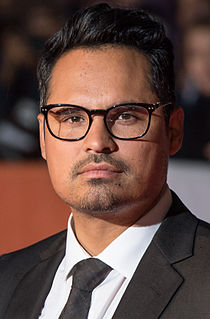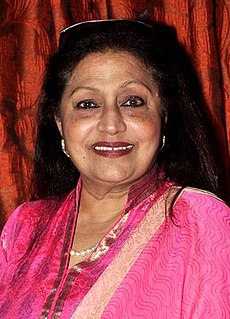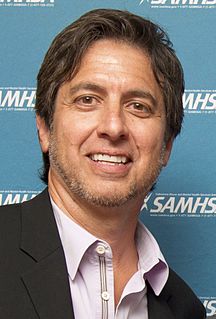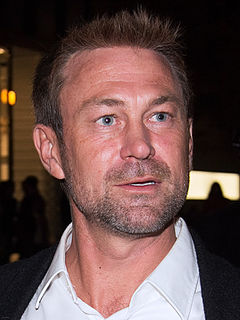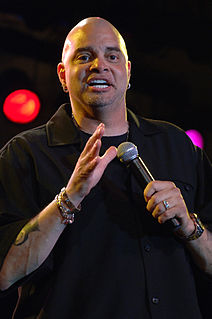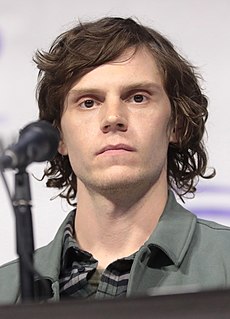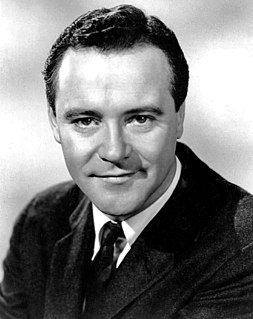A Quote by Michael Pena
I'm just an actor. If it's drama, I add as much humour as the part will stand. And if it's a comedy, add as much drama as you can, so it balances out; you don't wanna be too serious.
Related Quotes
Having written both comedy and drama, comedy's harder because the fear of failure's so much stronger. When you write a scene and you see it cut together, and it doesn't make you laugh, it hurts in a way that failed drama doesn't. Failed drama, it's all, 'That's not that compelling,' but failed comedy just lays there.
Because I was familiar with Taika's Watiti work and there's a very subversive, funny streak amongst all of them. I don't think he turned [Hunt for the Wilderpeople] into a sort of drama, there's too much dark material underneath it for it to be a comedy; it wasn't designed to be a comedy. I think it's a comedy... I think it's a drama that's funny; which is different.
As a writer, I haven't delved into dramatic writing. As an actor, I could always, even more so than comedy, do drama. When you do your comedy and your drama, your acting style doesn't change. If it's a comedy, the situations and the characters might be a little funnier, but you're just trying to be honest.
I've always thought that comedy was just another dramatic expression. I try to measure the amount of truth in a work rather than just looking at the generic distinction between comedy and drama. There's a lot of bullshit drama that leaves you totally cold. And there's a lot of wasted comedy time too. But when you get something honest, it doesn't matter what label you give it.
I have done much more dramatic work than comedic work, but I think comedy is harder than drama in a way. I think it's one of those things that's constantly discussed - people who do comedy think it's harder, people who do drama think it's harder. Usually drama is the one that gets this highbrow respect.
When someone who is known as a comedic actor goes to drama, it often doesn't work out, because they really just chose wrong, I think - or maybe they're just not good actors. For me it's important making that transition seamless, and not a huge shock and jumping into cold water. It doesn't feel like I'm trying to shock you or anything. I'm just saying, "I'm a different actor than you thought I was. Don't put me in a box. I'm not just some kid running around screaming curse words." I have other tastes besides comedy. I love comedy, but I love dramatic movies just as much.
I am a fan of all genres. My big thing is to serve the purpose of the script and what the director wants. If it's a comedy, I want to be funny; if it's action, I want to bring the action. If it's drama, I want to be the catalyst for that drama. That's the fun part; it never gets boring being an actor.
